The domestic cat is hard wired to hunt. He is good at detecting fast motion – cats’ eyes construct around 60 visual images per second, which is 2x as fast as our human brains. He is ideally suited to detect the quick, rapid motions of the mice and other small creatures that he hunts. Hunting is part of who he is.
When the kittens are about 3-4 weeks old, the mother cat starts to bring back dead, injured or fatigued prey to allow the kittens to practice their hunting skills. Mother Cat will intervene if the kittens lose control of the live prey, otherwise she watches as they develop their hunting skills.
It’s important that we offer our cats an opportunity to engage in predatory (hunting) behavior. How do cats hunt in the wild?
- Your cat scans the landscape.
- She sees something moving, and goes over to that spot.
- She hears and smells MOUSE!
- She stalks her prey
- The mouse scurries away – she chases and pounces!
- Success! She catches and eats her prize.
We are not going to release live mice into our homes deliberately, so what can we do to allow hunting in the home?
Object (Toys) Play
Playtime or hunting in the home can be interactive or it can be playing alone.
Interactive games – with us
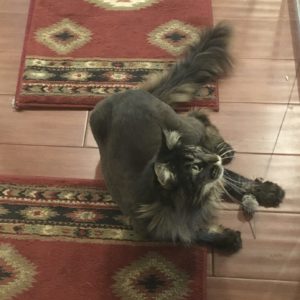
- Go Fish – fishing pole or wand toys
- Chasing string
- Catch the red dot – laser pointers
- Treat toss – toss treats and let your cat go get them.
Start with short, fast motions to get your cat’s attention, then move to longer runs.
Put all fishing poles, strings and other interactive toys out of kitty’s reach when the play session is done
How Does Your Cat Feel when Hunting?
Human hunters report feelings of exhilaration while on the “chase”, satisfaction when capturing their quarry and frustration when they miss.
Your cat shares these emotions. Avoid toys that present frustration – they may not be popular for long.
A Frustrating Toy
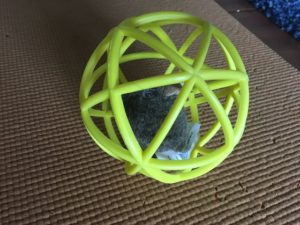
I bought a toy with a mouse in a ball-shaped cage. The mouse would squeak as the ball rolled. Marley spent an hour trying to paw the mouse out of the cage without success and then left the toy alone – he had better things to do!
If the mouse in the cage had been a removable food puzzle, Marley would have had the satisfaction of “catching” the mouse and getting a treat.
Avoiding Frustration
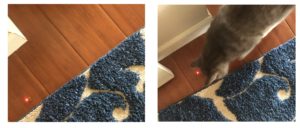
Try to end play sessions on a positive note. Play should be challenging but not impossible to catch the prize! If the task is too hard, cats, like people, will give up. For example, when using laser pointers, end the session with some “targeting” – direct your cat with the light to treats you have hidden around the play area.
Interactive Playtime – Communicating with your cat
- Daily interactive play time is best
- Short, intense play sessions of 5- 10 minutes often are enough
- It is best if these are at the same time every day, say after dinner. This way, your cat knows what is going to happen – the routine is a way for you to communicate with him.
Keeping the hunt alive with “self play” toys
- Rotate toys every 1-2 weeks
- “Marinate” toys not in use in a box with catnip
- Store the week’s toys in a box with an opening so your cat can choose the toys she wants
Cats can also engage in hunting behavior through play with other cats. Our next blog post will look into “social play among cats”.
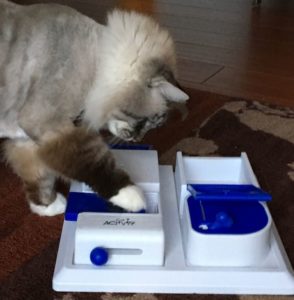
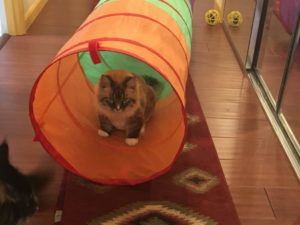

karen says:
Some of the best times I had with Mr. Tobias was with the pole toy, he loved it. I had no idea how fast their eyes could process 60 images per second amazing.